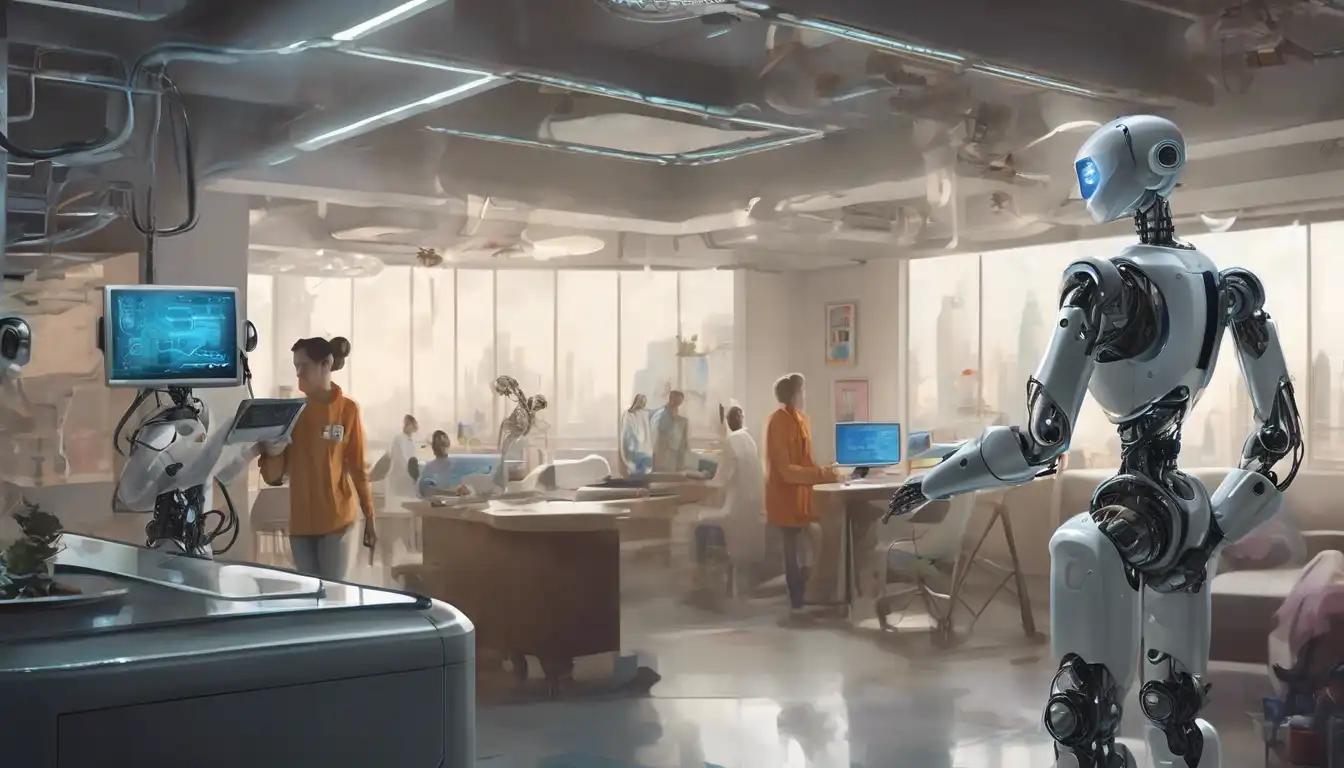The Future of Robotics in Everyday Life
As we stand on the brink of a technological revolution that will fundamentally alter the way we live, work, and relate to one another, robotics is at the heart of this transformation. The future of robotics in everyday life is not just about the automation of tasks but about the creation of a new paradigm where humans and machines collaborate to enhance the quality of life.
Robotics in the Home
Imagine waking up to a robot that has already prepared your breakfast, cleaned your home, and even walked your dog. This is not a scene from a sci-fi movie but a near-future reality. Robotics is set to revolutionize home life, making everyday chores a thing of the past. From robotic vacuum cleaners like the Roomba to more advanced systems that can cook and clean, the smart home of the future will be powered by robotics.
Robotics in Healthcare
The healthcare sector is another area where robotics is making significant inroads. Surgical robots, such as the Da Vinci Surgical System, are already performing complex procedures with precision beyond human capabilities. In the future, we can expect robots to play a larger role in patient care, from assisting the elderly to providing companionship and monitoring health conditions.
Robotics in Education
Education is also set to benefit from the advancements in robotics. Robots can provide personalized learning experiences, adapt to the learning pace of each student, and even assist in teaching complex subjects. The integration of robotics in education promises to make learning more interactive and accessible to students around the globe.
Challenges and Considerations
Despite the exciting possibilities, the integration of robotics into everyday life comes with its set of challenges. Issues such as privacy, security, and the displacement of jobs need to be addressed. Moreover, the ethical implications of robots making decisions that affect human lives are a topic of ongoing debate.
The future of robotics in everyday life is bright, with the potential to transform how we live, work, and interact. As we navigate this new era, it is crucial to balance innovation with ethical considerations to ensure that the benefits of robotics are accessible to all.
Conclusion
The integration of robotics into everyday life is inevitable. From smart homes to advanced healthcare and education, robots are set to become an integral part of our daily routines. While challenges remain, the potential benefits of robotics in enhancing the quality of life are immense. As we look to the future, it is clear that robotics will play a pivotal role in shaping the world of tomorrow.
